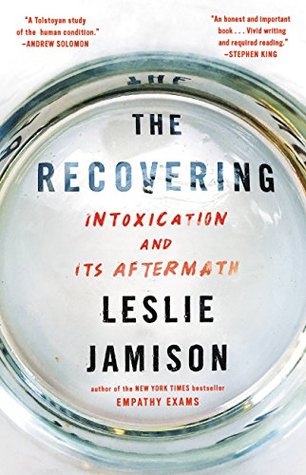More on this book
Community
Kindle Notes & Highlights
In recovery, I found a community that resisted what I’d always been told about stories—that they had to be unique—suggesting instead that a story was most useful when it wasn’t unique at all, when it understood itself as something that had been lived before and would be lived again. Our stories were valuable because of this redundancy, not despite it. Originality wasn’t the ideal, and beauty wasn’t the point.
I’d always been enthralled by stories of wreckage. But I wanted to know if stories about getting better could ever be as compelling as stories about falling apart.
I had this thought that sautéing things would make me an adult.
I pictured Carver in terms of hijinks and love triangles, petty theft and seductions, ash falling unnoticed from the tip of his cigarette as he sat engrossed at his typewriter, riding the comet’s tail of a bender into its ruthless wisdom. Whatever psychic ledges his long drunks had taken him to, whatever voids he had glimpsed from those perches, I pictured him deftly smuggling that desperation into the quiet betrayals and pregnant pauses of his fiction. One of Carver’s friends put it like this: “Ray was our designated Dylan Thomas, I think—our contact with the courage to face all possible
...more
I wasn’t thinking of the elderly white drunks gathering every morning at the nonwriters’ bars at the edges of our cornfields, veterans and farmers—the ones for whom intoxication wasn’t mythic fuel but daily, numbing relief, the ones who didn’t narrate their drunken binges as brushes against existential wisdom.
During the worst of his drinking, Carver claimed he was spending twelve hundred dollars a month on liquor,
If you needed to drink that much, you had to hurt, and drinking and writing were two different responses to that same molten pain. You could numb it, or else grant it a voice.
Sasha is a grotesque version of what Rhys always feared she would become: a pariah who drove everyone away by showing the intensity of her unhappiness. “I could deny myself,” she once wrote in her diary. “Then I could make them love me and be kind to me… That has been the struggle.”
One problem with living as if your sadness takes up the whole world is that it never does—and the people who live beyond its borders often have needs of their own.
Certain truths had turned transparent as glass, because they were so ingrained: People would probably leave, it was just a question of when. Attention was something I had to earn, not something I could take for granted. I had to seduce at all moments.
The history of her estrangement from our family had been explained to me vaguely, a blurry story, but as I grew older, her distance from the family was always described in terms of drinking and mental illness, like twin knobs bringing the microscope slide into focus.
Drinking isn’t dangerous for everyone, but it’s dangerous for us.
One 1995 survey asked participants: “Would you close your eyes for a second, envision a drug user, and describe that person to me?” Even though African Americans constituted only 15 percent of the nation’s drug users, 95 percent of the respondents pictured someone black. This hypothetical drug user was the product of decades of effective storytelling.
The more you start to need a thing, whether it’s a man or a bottle of wine, the more you are unwittingly—reflexively, implicitly—convincing yourself you’re not enough without it.
Life was the rent, and the fickle vacuum cleaner, and the slow creep of silence, a silence I wanted to understand as intimacy, but couldn’t help reading as decay, as we sat quietly at our kitchen table, over godly tomatoes: Have we run out of things to say? These changes were only ordinary, but I’d never stuck around to watch love become daily. I was afraid Dave would regret the life we’d made together, afraid I couldn’t constantly produce a version of myself that he’d like enough to choose over everyone else—which I believed was a requirement of love. Wasn’t that the difference between love
...more
My relationship with Dave was also the first time I’d let myself be known in boringness and tedium and irritation, in those moments where I felt tired and unalive
What does the concept of recovery mean? It can mean healing, repair, relocation, reclamation, or recuperation.
G. K. Chesterton: “How much larger your life would be if your self could become smaller in it. You would find yourself under a freer sky, in a street full of splendid strangers.”
Would he ever be able to tell another story as well as he’d told the story of falling apart?
When people in the program talked about a Higher Power, they sometimes simply said “H.P.,” which seemed expansive and open, a pair of letters you could fill with whatever you needed: the sky, other people in meetings, an old woman who wore loose flowing skirts like my grandmother had worn. Whatever it was, I needed to believe in something stronger than my willpower.
“Being Irish isn’t a prerequisite for being a drunk, but it’s not an obstacle either.”


